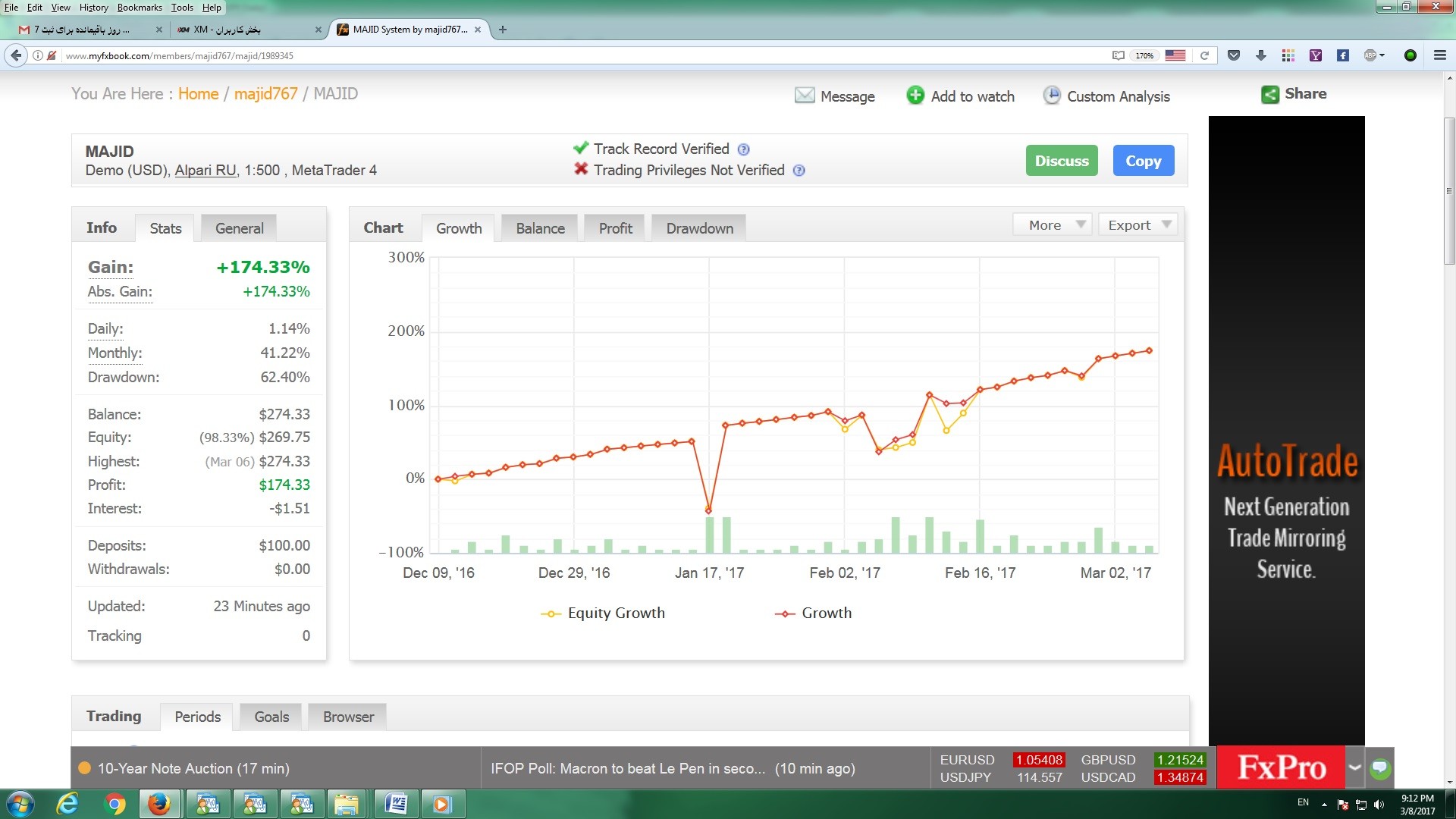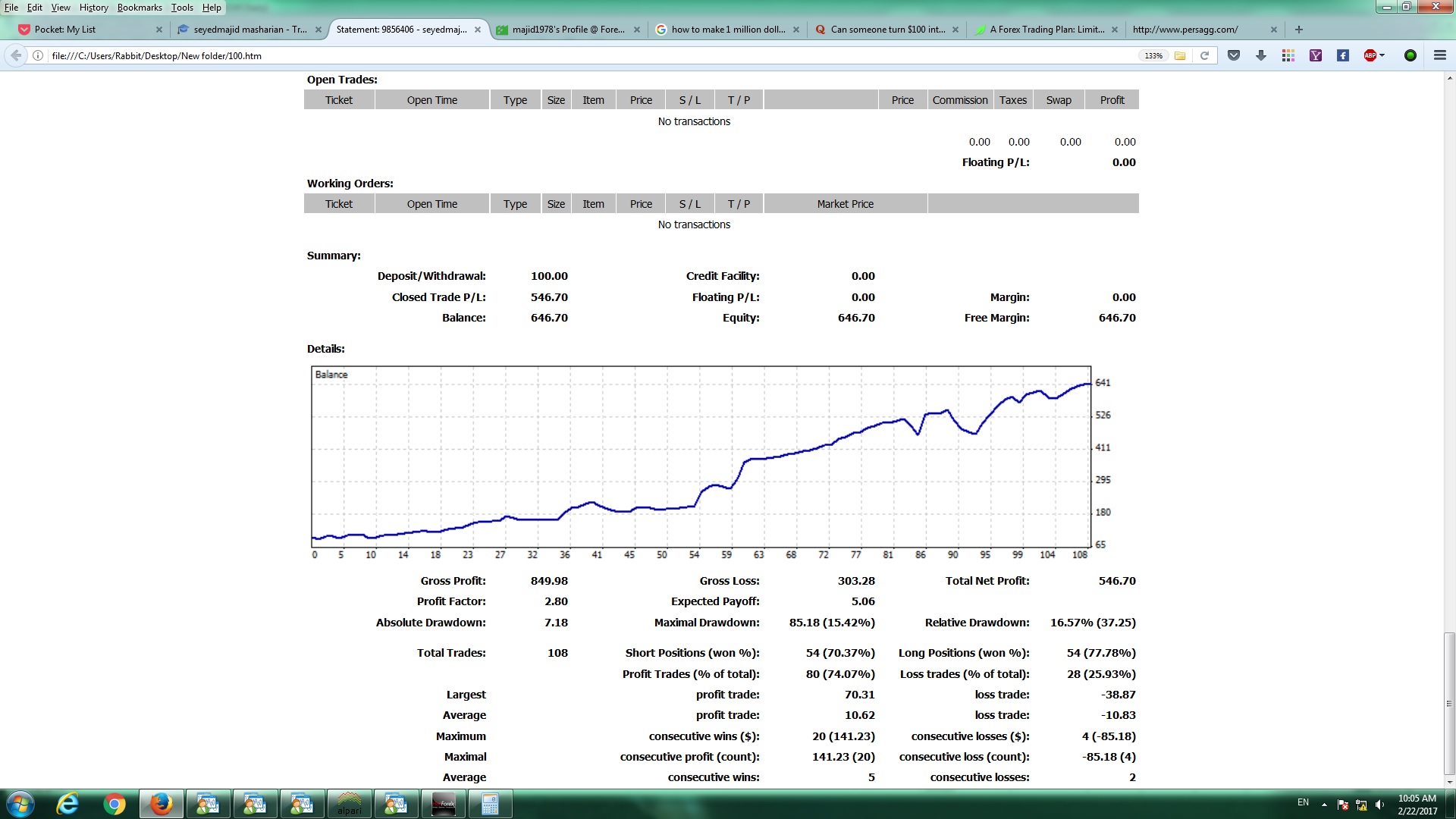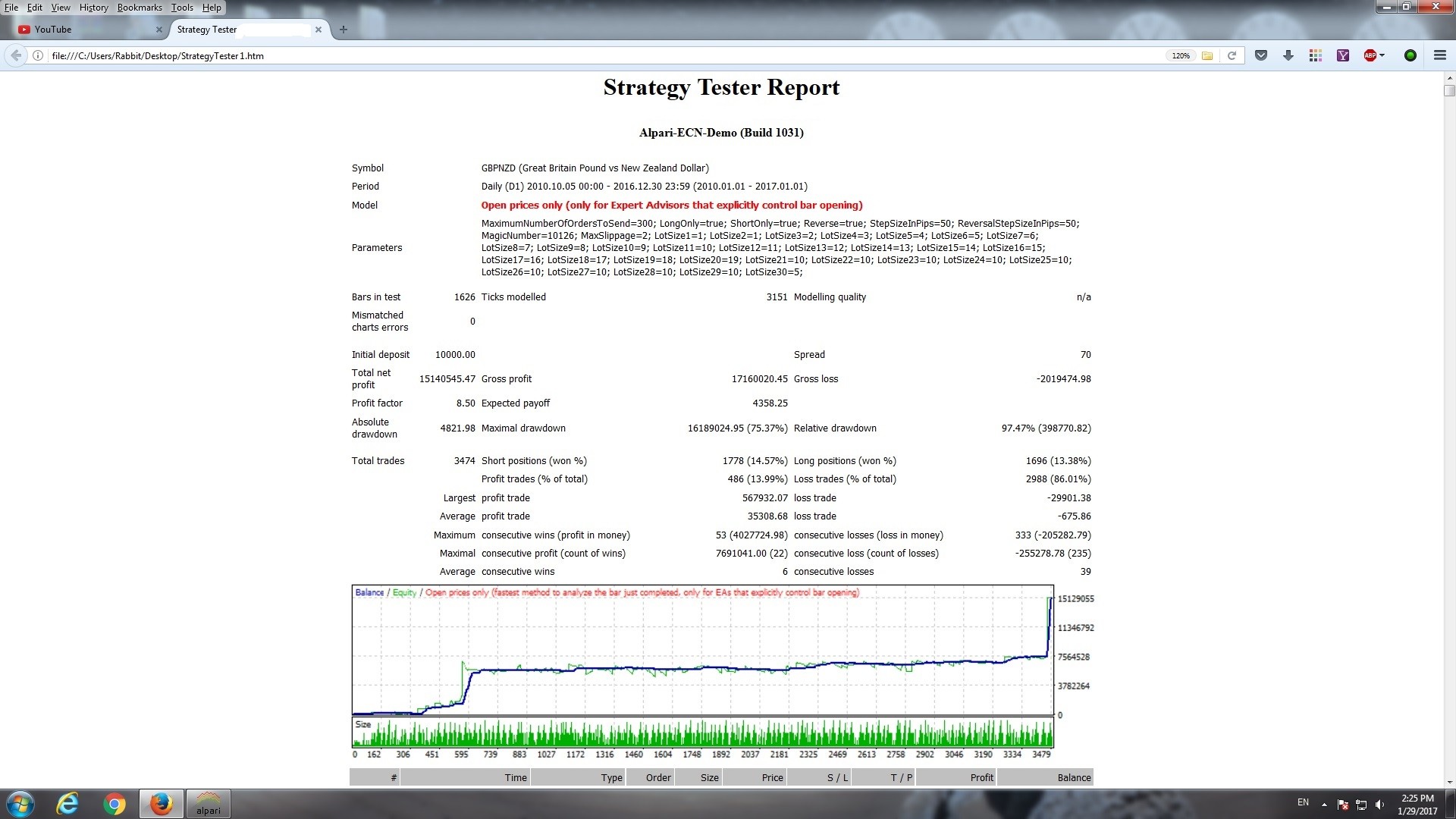Seyedmajid Masharian / Perfil
forex trader
en
home
Amigos
895
Solicitudes
Enviadas
Seyedmajid Masharian
Top Ten US Economic Indicators
http://www.investopedia.com/articles/personal-finance/020215/top-ten-us-economic-indicators.asp
http://www.investopedia.com/articles/personal-finance/020215/top-ten-us-economic-indicators.asp
Seyedmajid Masharian

The Smart Money Trade – Is That You?
Smart money index (SMI) of smart money flow index is a technical analysis indicator demonstrating investors’ sentiment. The index was invented and popularized by money manager Don Hays. The indicator is based on intra-day price patterns.
The main idea is that the majority of traders (emotional, news-driven) overreact at the beginning of the trading day because of the overnight news and economic data. There is also a lot of buying on market orders and short covering at the opening.
Smart, experienced investors start trading closer to the end of the day having the opportunity to evaluate market performance. Therefore, the basic strategy is to bet against the morning price trend and bet with the evening price trend.
Sounds simple enough. The “dumb money” active in the morning, while the “smart money” work’s its magic near the close.
Check it out – The SP 500 is the top chart, and the “smart money” on the bottom.
The smart money has been “selling into this rally” since June of 2012!
It’s not rocket science, as emotions tend to drive new traders / investors right into the hands of the more experienced.
If you’re “up and attem” in the mornings and can’t figure out why your trading isn’t going so well, perhaps it’s time to really question…….
Are you dumb?
https://forexkong.com/2013/11/21/the-smart-money-trade-is-that-you/
Smart money index (SMI) of smart money flow index is a technical analysis indicator demonstrating investors’ sentiment. The index was invented and popularized by money manager Don Hays. The indicator is based on intra-day price patterns.
The main idea is that the majority of traders (emotional, news-driven) overreact at the beginning of the trading day because of the overnight news and economic data. There is also a lot of buying on market orders and short covering at the opening.
Smart, experienced investors start trading closer to the end of the day having the opportunity to evaluate market performance. Therefore, the basic strategy is to bet against the morning price trend and bet with the evening price trend.
Sounds simple enough. The “dumb money” active in the morning, while the “smart money” work’s its magic near the close.
Check it out – The SP 500 is the top chart, and the “smart money” on the bottom.
The smart money has been “selling into this rally” since June of 2012!
It’s not rocket science, as emotions tend to drive new traders / investors right into the hands of the more experienced.
If you’re “up and attem” in the mornings and can’t figure out why your trading isn’t going so well, perhaps it’s time to really question…….
Are you dumb?
https://forexkong.com/2013/11/21/the-smart-money-trade-is-that-you/

Seyedmajid Masharian
Daily retail FX volumes dip to $317 bln in Q2 -industry site
Online retail brokers traded $317 billion worth of currencies a day in the second quarter, down around 13 percent on the quarter but still up substantially compared to the same period last year, according to industry website Finance Magnates.
Previously viewed as a sideshow to the wholesale trading between banks and big investment and pension funds that forms the core of the $5 trillion a day global currency market, the retail sector has grown steadily in size and importance.
In a year which has seen currency trading jump as a percentage of the activity of banks and other financial market players, volumes across the retail sector are up by anything between 20 and 40 percent on the same period of last year.
Data and estimates collated by industry news and analysis website Finance Magnates (www.financemagnates.com) showed U.S.-based Gain Capital, Interactive Brokers and Oanda all made gains on the quarter against their competitors.
The numbers, which Reuters has seen but not verified with each of the companies, also showed volumes at another smaller European player, CMC, rose 23 percent in a quarter that saw it announce plans for a public share flotation.
"CMC Markets outperformed other major brokers by posting 23% growth of forex trading volumes during Q2," Finance Magnates senior analyst Ron Finberg said.
"With CMC Markets publicly stating its goals of an IPO, their forex performance and higher account sizes reveal that the broker is successfully being able to achieve growth as a prelude to going public."
Trade on Japanese platforms, the single biggest market for ordinary consumers making small leveraged bets on currency movements, fell by a quarter to $144 billion, pulling overall global volumes down from $368 billion on the first quarter.
But for brokers outside of Japan business grew by just over a billion dollars a day to a total of $173.5 billion a day in the second quarter, helping U.S. and European firms to increase market share.
http://www.reuters.com/article/markets-forex-volumes-idUSL5N10A3ZC20150730
Online retail brokers traded $317 billion worth of currencies a day in the second quarter, down around 13 percent on the quarter but still up substantially compared to the same period last year, according to industry website Finance Magnates.
Previously viewed as a sideshow to the wholesale trading between banks and big investment and pension funds that forms the core of the $5 trillion a day global currency market, the retail sector has grown steadily in size and importance.
In a year which has seen currency trading jump as a percentage of the activity of banks and other financial market players, volumes across the retail sector are up by anything between 20 and 40 percent on the same period of last year.
Data and estimates collated by industry news and analysis website Finance Magnates (www.financemagnates.com) showed U.S.-based Gain Capital, Interactive Brokers and Oanda all made gains on the quarter against their competitors.
The numbers, which Reuters has seen but not verified with each of the companies, also showed volumes at another smaller European player, CMC, rose 23 percent in a quarter that saw it announce plans for a public share flotation.
"CMC Markets outperformed other major brokers by posting 23% growth of forex trading volumes during Q2," Finance Magnates senior analyst Ron Finberg said.
"With CMC Markets publicly stating its goals of an IPO, their forex performance and higher account sizes reveal that the broker is successfully being able to achieve growth as a prelude to going public."
Trade on Japanese platforms, the single biggest market for ordinary consumers making small leveraged bets on currency movements, fell by a quarter to $144 billion, pulling overall global volumes down from $368 billion on the first quarter.
But for brokers outside of Japan business grew by just over a billion dollars a day to a total of $173.5 billion a day in the second quarter, helping U.S. and European firms to increase market share.
http://www.reuters.com/article/markets-forex-volumes-idUSL5N10A3ZC20150730
Seyedmajid Masharian
Controlling Greed When Trading
https://www.dailyfx.com/forex/education/trading_tips/post_of_the_day/2012/08/06/Controlling_Greed_When_Trading..html
Below are two quotes from two different traders…
“Greed has cost me more than anything else.”
“How can I control greed??? Thathas been my number 1 problem.”
Human nature being what it is, quotes of this type have come from many traders over the years.
So, how does a trader go about controlling it?
First of all, if you personally can identify with these quotes, it means you are aware that greed is negatively influencing your trading. That recognition alone is a BIG step toward resolving the issue.
To keep this detrimental emotion in check, having a definite trading plan in mind…ideally written out…will help. Keep the plan nearby where you can reference it prior to placing any trade.
It will be a strategy that you have tested and one that has put pips into your account, live or demo, over time. By this I do not mean that the strategy puts positive pips in your account on each and every trade since every trade will not be a winner. But the trading plan/strategy you are using, overall, has been adding to your account size.
Then, only take trades that fit that trading plan exactly. If the trade does not measure up, don't take the trade. You only want to enter higher probability trades…trades based on your pre-determined plan. This will help prevent just randomly jumping into a trade because “it looks kind of OK”, or the “I just like to be in a trade” syndrome.
Next, never put more than 5% of your account at risk at any one time and always trade with at least a 1:2 Risk Reward Ratio in place. Rigidly adhering to both of these rules will prevent a trader from putting too much of their account at risk as well as exiting the trade at a desirable and predetermined level of profit. Overleveraging one’s account is one of the primary faults embraced by a trader influenced by greed.
Lastly, after the trade has executed with stops and limits in place, leave it alone!! Just let the trade play out according to the original parameters you put into place prior to being in the trade when emotions were non-existent.
Think about it…
When you were looking at the charts, checking trends, support and resistance levels, fundamentals and the like, you were totally without emotion. The plans that were put together while in that state of mind were based on facts alone. Once the trade is entered, however, emotions can shift into high gear. Making changes to a fact-oriented, unemotional trading plan based on moment to moment emotional shifts is not a prudent way to trade.
Managing and dealing with greed is not something that will be resolved over the next couple of trades over the next couple of days. However, by being conscious of how greed can negatively influence your trading and implementing the above points as part of your trading regimen, you will be taking positive steps toward the goal of “greed free” trading.
Lastly, tomorrow, August 7, 2012, I will be conducting a webinar on the Psychology of Trading. During that webinar (along with taking your questions)
I will be covering the former topics in greater detail.
You can access the webinar LIVE at 1 PM Eastern time by clicking on the link below…
https://plus.dailyfx.com/tnews/liveclassroom.do?liveclassroom=&ib=dailyfx
The webinar can also be viewed in the Course Archives area at the same link after its initial presentation.
DailyFX provides forex news and technical analysis on the trends that influence the global currency markets.
DISCLOSURES
https://www.dailyfx.com/forex/education/trading_tips/post_of_the_day/2012/08/06/Controlling_Greed_When_Trading..html
Below are two quotes from two different traders…
“Greed has cost me more than anything else.”
“How can I control greed??? Thathas been my number 1 problem.”
Human nature being what it is, quotes of this type have come from many traders over the years.
So, how does a trader go about controlling it?
First of all, if you personally can identify with these quotes, it means you are aware that greed is negatively influencing your trading. That recognition alone is a BIG step toward resolving the issue.
To keep this detrimental emotion in check, having a definite trading plan in mind…ideally written out…will help. Keep the plan nearby where you can reference it prior to placing any trade.
It will be a strategy that you have tested and one that has put pips into your account, live or demo, over time. By this I do not mean that the strategy puts positive pips in your account on each and every trade since every trade will not be a winner. But the trading plan/strategy you are using, overall, has been adding to your account size.
Then, only take trades that fit that trading plan exactly. If the trade does not measure up, don't take the trade. You only want to enter higher probability trades…trades based on your pre-determined plan. This will help prevent just randomly jumping into a trade because “it looks kind of OK”, or the “I just like to be in a trade” syndrome.
Next, never put more than 5% of your account at risk at any one time and always trade with at least a 1:2 Risk Reward Ratio in place. Rigidly adhering to both of these rules will prevent a trader from putting too much of their account at risk as well as exiting the trade at a desirable and predetermined level of profit. Overleveraging one’s account is one of the primary faults embraced by a trader influenced by greed.
Lastly, after the trade has executed with stops and limits in place, leave it alone!! Just let the trade play out according to the original parameters you put into place prior to being in the trade when emotions were non-existent.
Think about it…
When you were looking at the charts, checking trends, support and resistance levels, fundamentals and the like, you were totally without emotion. The plans that were put together while in that state of mind were based on facts alone. Once the trade is entered, however, emotions can shift into high gear. Making changes to a fact-oriented, unemotional trading plan based on moment to moment emotional shifts is not a prudent way to trade.
Managing and dealing with greed is not something that will be resolved over the next couple of trades over the next couple of days. However, by being conscious of how greed can negatively influence your trading and implementing the above points as part of your trading regimen, you will be taking positive steps toward the goal of “greed free” trading.
Lastly, tomorrow, August 7, 2012, I will be conducting a webinar on the Psychology of Trading. During that webinar (along with taking your questions)
I will be covering the former topics in greater detail.
You can access the webinar LIVE at 1 PM Eastern time by clicking on the link below…
https://plus.dailyfx.com/tnews/liveclassroom.do?liveclassroom=&ib=dailyfx
The webinar can also be viewed in the Course Archives area at the same link after its initial presentation.
DailyFX provides forex news and technical analysis on the trends that influence the global currency markets.
DISCLOSURES
Seyedmajid Masharian
WATCH THIS INCREDIBLE VIDEO ABOUT INSTITUTIONAL TRADERS
MIND BLOWING TRUTH
https://www.youtube.com/watch?v=OgS52RyiO_M&t=468s
MIND BLOWING TRUTH
https://www.youtube.com/watch?v=OgS52RyiO_M&t=468s
Seyedmajid Masharian
A Wall Street performance coach who's consulted on Showtime's 'Billions' says too many people have the same misconception about success
For some of Denise Shull's clients, being in a slump might mean losing millions of dollars of other people's money.
Shull is the founder of the ReThink Group, a performance coaching group that specializes in clients on Wall Street. She's also one of the inspirations for Wendy Rhoades, the in-house psychiatrist at the fictional hedge fund at the center of Showtime's hit show "Billions."
Shull studied the neuropsychology of unconscious thought at the University of Chicago and spent 15 years as an equities trader. They are two worlds she combined when she started ReThink in 2003, putting her own spin on the niche market of Wall Street performance coaching, a path paved by the late psychiatrist Ari Kiev, who was employed by Steve Cohen's hedge fund SAC Capital.
Perhaps the most defining characteristic of Shull's approach is that nearly all of us, regardless of what industry we are in, have a misconception about how the mind works and thus how we can recover from failure: We think we can will ourselves to success.
"The conventional wisdom on feelings and emotions is just wrong," she told Business Insider.
denise shullReThink Group founder Denise Shull.Courtesy of Denise Shull.
Shull thinks many people have assumptions based on an outdated theory of the "triune brain," which basically says emotions, thoughts, and basic functions are handled separately within the brain; the reality, she says, is that all three of these roles are related in brain mechanics.
Too many people, she said, think that "if we have a plan and that we're disciplined then we'll be able to do the things that we want. ... It doesn't work like that."
It's why Shull has clients in the first place, she explained. The clients know that they are underperforming and they see their mistakes. But no pep talk from a manager or colleague and no Stoic denial of feelings can get them back to their peak.
Instead, she recommends her clients — and anyone else struggling through a slump — identify and name the feelings they are attaching to the weaknesses causing them to fail, and dive right in. By embracing these feelings, her clients can come to understand them, strip them of power, and then replace them with desired emotions. The thoughts follow the feelings, she insists, counter to what people often think.
"Sometimes I feel like I'm just going to gag, if I have to read 'mental toughness' one more time," she said. "Like ugh, just being tough doesn't get you the result you want. It fails you at the worst possible moment. ... And then all those feelings come crashing in and cause you to be self destructive or not perform up to your potential."
http://www.businessinsider.com/wall-street-performance-coach-denise-shull-how-to-get-out-of-a-slump-2017-2
For some of Denise Shull's clients, being in a slump might mean losing millions of dollars of other people's money.
Shull is the founder of the ReThink Group, a performance coaching group that specializes in clients on Wall Street. She's also one of the inspirations for Wendy Rhoades, the in-house psychiatrist at the fictional hedge fund at the center of Showtime's hit show "Billions."
Shull studied the neuropsychology of unconscious thought at the University of Chicago and spent 15 years as an equities trader. They are two worlds she combined when she started ReThink in 2003, putting her own spin on the niche market of Wall Street performance coaching, a path paved by the late psychiatrist Ari Kiev, who was employed by Steve Cohen's hedge fund SAC Capital.
Perhaps the most defining characteristic of Shull's approach is that nearly all of us, regardless of what industry we are in, have a misconception about how the mind works and thus how we can recover from failure: We think we can will ourselves to success.
"The conventional wisdom on feelings and emotions is just wrong," she told Business Insider.
denise shullReThink Group founder Denise Shull.Courtesy of Denise Shull.
Shull thinks many people have assumptions based on an outdated theory of the "triune brain," which basically says emotions, thoughts, and basic functions are handled separately within the brain; the reality, she says, is that all three of these roles are related in brain mechanics.
Too many people, she said, think that "if we have a plan and that we're disciplined then we'll be able to do the things that we want. ... It doesn't work like that."
It's why Shull has clients in the first place, she explained. The clients know that they are underperforming and they see their mistakes. But no pep talk from a manager or colleague and no Stoic denial of feelings can get them back to their peak.
Instead, she recommends her clients — and anyone else struggling through a slump — identify and name the feelings they are attaching to the weaknesses causing them to fail, and dive right in. By embracing these feelings, her clients can come to understand them, strip them of power, and then replace them with desired emotions. The thoughts follow the feelings, she insists, counter to what people often think.
"Sometimes I feel like I'm just going to gag, if I have to read 'mental toughness' one more time," she said. "Like ugh, just being tough doesn't get you the result you want. It fails you at the worst possible moment. ... And then all those feelings come crashing in and cause you to be self destructive or not perform up to your potential."
http://www.businessinsider.com/wall-street-performance-coach-denise-shull-how-to-get-out-of-a-slump-2017-2
Seyedmajid Masharian


Muhammad Elbermawi
2017.02.22
I don't love it ... I just trade it ... emotions at Forex can destroy destroy you ... take care :)
Seyedmajid Masharian
2017.02.22
but you must love you job to become successful at it warren buffet says
Seyedmajid Masharian
Daily and 4hr Price Action Strategies
https://2ndskiesforex.com/trading-strategies/forex-strategies/daily-and-4hr-price-action-strategies/
https://2ndskiesforex.com/trading-strategies/forex-strategies/daily-and-4hr-price-action-strategies/
Seyedmajid Masharian
Warren Buffett’s 10 Ways to Get Rich
http://www.warrenbuffett.com/warren-buffett-10-ways-to-get-rich/
http://www.warrenbuffett.com/warren-buffett-10-ways-to-get-rich/
Seyedmajid Masharian
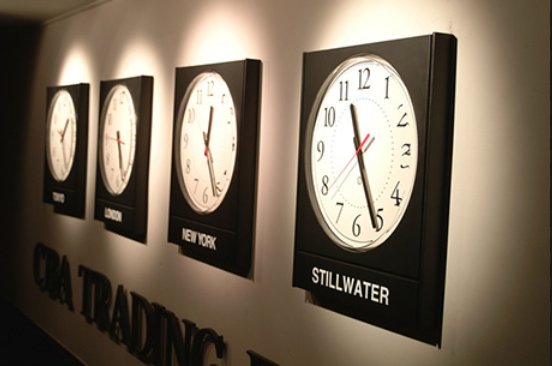
Why 3am is the best time to trade forex
https://www.etxcapital.com/blog/why-3am-is-the-best-time-to-trade-forex
https://www.etxcapital.com/blog/why-3am-is-the-best-time-to-trade-forex

Seyedmajid Masharian
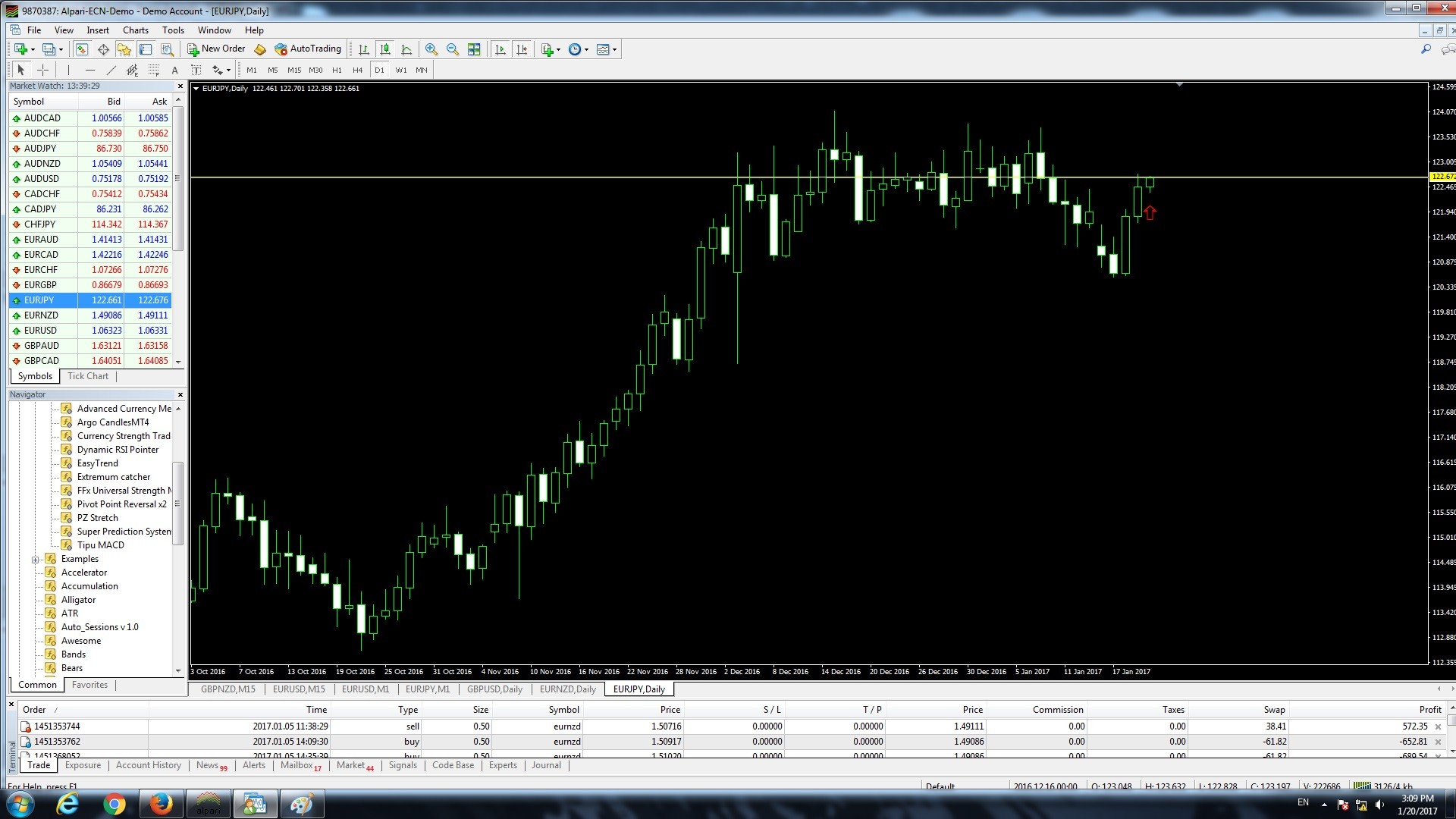
TRADING SIGNALS BASED ON DAILY PRICE ACTION
ENTER THE MARKET AND WAIT UNTIL BODY OF THE LAST CANDLE CLOSES ABOVE PREVIOUS CANDLE ON D1
ENTER THE MARKET AND WAIT UNTIL BODY OF THE LAST CANDLE CLOSES ABOVE PREVIOUS CANDLE ON D1

Seyedmajid Masharian

TRADING SIGNALS BASED ON DAILY PRICE ACTION
ENTER THE MARKET AND WAIT UNTIL BODY OF THE LAST CANDLE CLOSES ABOVE PREVIOUS CANDLE ON D1
ENTER THE MARKET AND WAIT UNTIL BODY OF THE LAST CANDLE CLOSES ABOVE PREVIOUS CANDLE ON D1

Seyedmajid Masharian

TRADING SIGNALS BASED ON DAILY PRICE ACTION
ENTER THE MARKET AND WAIT UNTIL BODY OF THE LAST CANDLE CLOSES ABOVE PREVIOUS CANDLE ON D1
ENTER THE MARKET AND WAIT UNTIL BODY OF THE LAST CANDLE CLOSES ABOVE PREVIOUS CANDLE ON D1

:
